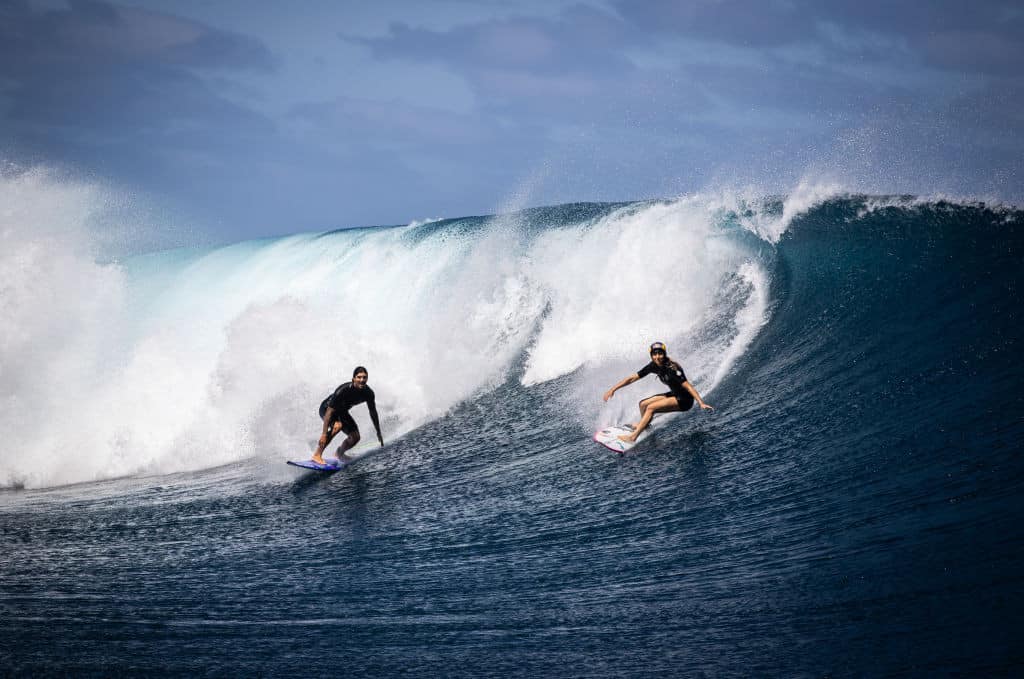The International Surfing Association (ISA) has proposed Olympic events without a physical judge tower but with remote judges for the upcoming Olympic Games, aiming to appease local ecological resistance.
Back and forth discussions have arisen regarding the Surfing events for Paris 2024 on the idyllic beaches of Teahupo’o, on the southwest coast of the Island of Tahiti in French Polynesia. The easternmost area of Oceania is administratively under the control of France.
The reality is that the organisation does not have a plan B and has confirmed that the Surfing events will take place on this beach located 70 km from the island’s capital, Papeete. In light of this situation, environmental organisations have raised concerns, arguing that the construction of the necessary infrastructure, as well as the new judge tower, will significantly impact coral reefs and marine fauna, causing, according to them, irreparable environmental damage.
Faced with these claims from the local community, who have also gathered around 230,000 signatures online, and the back-and-forth discussions beyond the recent confirmation from the organising committee, the International Surfing Association (ISA) doesn’t want to be portrayed as the antagonist and has proposed an alternative, capitalising on the use of prevailing technologies in this era.
The main idea is that Olympic competitions next year should be judged remotely. This proposal was presented to the organisers of Paris 2024 and the Polynesian government, which suggested the use of “live images taken from land, water, and drones” to judge events in Teahupo’o on the French Pacific island.
The proposal was disclosed by ISA in a press release and emerged after failed attempts in the construction of the tower, which led to the destruction of part of a vibrant coral reef with a barge. ISA claimed to have submitted a proposal for remote evaluation on December 9, one day before Polynesian President Moetai Brotherson announced that the surf competition would stay at its planned location.
“Faced with this change of position, Paris 2024 will reach out to key stakeholders to understand how ISA envisions organising events without access to a judge tower,” responded the organising committee of the Paris Olympic Games.
Brotherson presented a phased plan for the construction of the new aluminum tower, to be completed by 13 May, in time for a World Surf League (WSL) event considered a rehearsal for the Olympic Games. During discussions with concerned stakeholders, Brotherson obtained “unanimous support from mayors, the surf federation (of Tahiti), and even associations, except one,” said Brotherson.
The reality is that it remains to be seen whether the tower (made of aluminum instead of wood) will ultimately be built, or if technology will be used to judge the competitions of a sport that, according to historical records, is believed to have been practiced by fishermen in ancient Peru and later, around 400 AD, throughout Polynesia, where 2,400 years later they will have their global summit.
